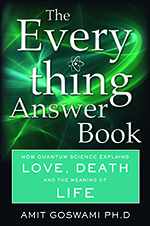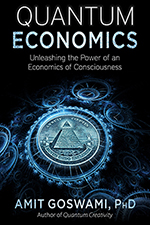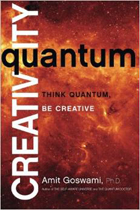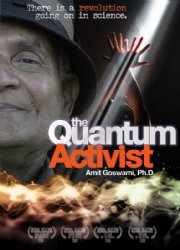Does Philosophy or Our “Worldview” Matter in Our Daily Life?
By Dr. Amit Goswami
A friend recently asked me, “You spend a lot of space in your writing pointing out the incompleteness or inadequacy of the philosophy of scientific materialism for dealing with the human being and how the quantum worldview does better. But tell me true, does philosophy or worldview—scientific materialism or the quantum-based one—really make a difference on how a person lives day-to-day?” This is a very important question to engage in.
In America and elsewhere, it is a part of the propaganda of the upholders of scientific materialism that philosophy does not matter. In fact they say, did we not debunk all high-sounding metaphysics in the nineteen eighties?
This is true. The debunking was so effective in academia that Arts and Humanities departments everywhere believed it, and practically overnight scientific materialism became the unofficially accepted philosophy of all higher education faculties. And ever since, liberal education in America is way prejudiced in favor of the materialist philosophy.
I am getting to the question asked in the beginning. This is a prime example that philosophy does affect our daily life. Liberal education is supposed to free us from religious and other dogmas. But all the higher education a person can get today in the colleges and universities of this country is prejudiced in favor of another dogma—scientific materialism that all is matter and material movement including our consciousness.
This is the point, make no mistake about it: Scientific materialism is an exclusive philosophy; it excludes meaning, it excludes spiritual values and experiences or tries to give lame excuses calling them an explanation.
If the influence stopped at higher education, that would be one thing. Let’s face it: not too many us are into that. But no! Look at your high school curriculum; it, too, is heavily influenced by the philosophy of scientific materialism. In fact ideas like “everything is made of atoms and elementary particles” are being taught in elementary schools!
So, do you have to wonder why your children are more interested in processing information than meaning and values? We are vigilant to keep religious dogmas out of our schools, rightly. Secularism saves us there. But nobody thinks of applying secularism to the dogma of scientific materialism!
But, clearly, our children are getting very confusing messages. In schools they learn everything is made of elementary particles. And then on the dollar bill they read “in God we trust.” So what is God made of? Has to be elementary particles, what else? The teacher says so. Conclusion: God on the dollar bill must refer to the dollar bill itself. Money is God!
I am being facetious, of course. But I hope you see the point. I sometime wonder if we should not ask the Supreme Court to give us a ruling about why secularism should not apply to scientific materialism since it, too, is much like a religious dogma.
Let’s move on. Consider another example—freedom. This country was born with a battle for freedom. But scientific materialism maintains that our freedom is an illusion. Does this affect your daily life? You bet. It is based on this philosophy that your allopathic doctor treats you like a machine. This is why for your medical problem he or she hardly takes you into consultation about what is wrong with you. And patients buy in to it too. There is that famous story when a doctor (a maverick one obviously) asks his patient, “So, what’s wrong with you?” And the patient says, “That’s for you to tell me.” Implicit in this is that it is mechanical tests carried on by machines that will be the finder of the truth.
You go to an ice cream shop to buy an ice cream. Chocolate is your favorite, but this particular day, you hesitate. Suddenly you think, “I will get vanilla.” Did you exercise your free will?
Behavioral psychologists—scientific materialists all—will insist that it is all conditioning. It is. But the truth is, you have several conditioned options and have a personal list of preferences, and on the average your choices can be predicted. But there is no way that a psychologist or anyone else can predict your particular choice on a particular occasion when there is ambiguity.
Is this kind of freedom to choose important? Yes, of course it is. You take it for granted, but there are still many cultures in which this freedom is not available and people are still fighting for it.
In the olden days, religions would say, it is not your will but God’s will that governs your destiny. Today materialists say it is not your will but the patterns of your brain that dictate your choice. So then the brain has become your new God.
Philosophy matters. Our prejudice against philosophy was legitimate in the first part of the last century, before quantum physics. Philosophy, in this context, metaphysics, could not be tested in the laboratory then. But quantum physics has changed that. Now, many philosophical ideas are just another name for a non mathematical scientific theory because they can be put to test in the laboratory.
Do you have free will? Quantum physics-based theories that hold consciousness is legit, say, “Yes, up to a point.” And this free will is best expressed when you say “no” to a conditioned habit. It is true that what you usually experience as free will, for example when you decide to raise your arm, is not free. A neurophysiologist looking at an EEG connected to your brain will see electrical activity (called readiness potential) that will give away your intention fully 900 milliseconds ahead of your actually raising your arm. But this is not the whole thing! Even after the readiness potential shows up, as soon as you become aware of your so-called free-will thought, you can stop yourself from acting on it. The neurophysiologist Benjamin Libet demonstrated that in the lab.
Why is the freedom to say “no” important? Because doing so creates an open mind which is the doorway to a creative mind. And we need the basic freedom at the ego level, so some day we can graduate to real freedom that expresses itself in our creativity. True creativity is not likely to be part of your everyday life, but would you not like it to be so? Our forefathers and foremothers fought for our freedom to say no to external tyrants and internal conditioning. Isn’t it time that we extend that freedom to be creative?



